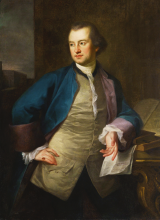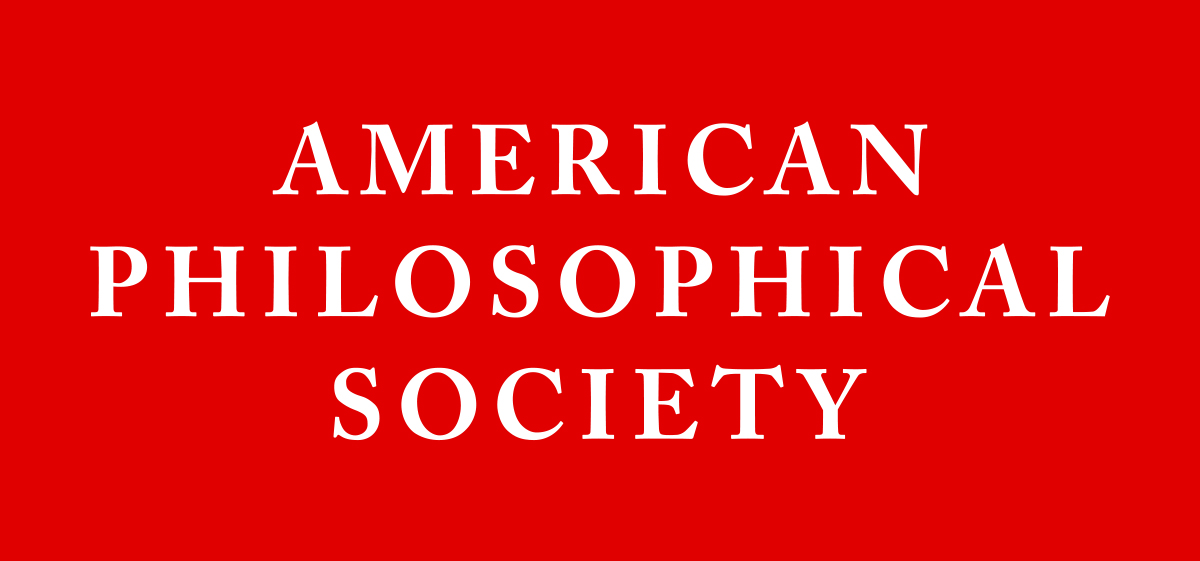John Morgan (56)
Election date: 1766Elected to the Young Junto in 1766, just before it became the American Society, and to the American Philosophical Society at its unification with the American Society in 1769. Founder of the Medical Society.
Curator of the APS (1769-1770)

John Morgan (16 October 1735–15 October 1789) was a physician, educator, and military medical director, and a member of the Young Junto (elected in 1766, just before it became the American Society) and American Philosophical Society (elected in 1769). Born in Philadelphia, he worked as an apothecary at the Pennsylvania Hospital, graduated in the first class of the College of Philadelphia in 1757, and served as a surgeon to provincial troops. He then studied anatomy and medicine at St. Thomas’s Hospital in London and at the University of Edinburgh. After receiving his M.D. in 1765 for an influential thesis on pus, he was elected to the Royal College of Physicians and the Royal Society. He continued his studies in Paris before joining Young Junto member Samuel Powel on a Grand Tour of Italy and France. Returning to America with an international reputation, Morgan founded a medical school at the College of Philadelphia and founded the Medical Society, which enforced stricter medical licensing standards. In both endeavors, he failed to consult and thus gave lasting offense to the city’s more established physicians, especially William Shippen, Jr. Although Morgan’s paper on the “Reciprocal Advantages of a Perpetual Union between Great-Britain and her American Colonies” had won a major prize in 1766, he sided with the colonists during the Revolution, serving as medical director of the Continental Army. When Morgan was blamed for the difficulties of wartime medical administration, Shippen maneuvered to replace him. In 1779, Congress exonerated Morgan, who then levelled charges of fraud against his rival that resulted in Shippen’s 1781 resignation. Thereafter, Morgan resumed his duties as a physician at the Pennsylvania Hospital and served as an original fellow of the Philadelphia College of Physicians. His father-in-law and brother-in-law Thomas and Francis Hopkinson were APS members, as was his brother George Morgan. (PI, ANB, DAB)
Publication: Philadelphia: Printed by William Bradford, at the corner of Market and Front-Streets, [1765]
Subjects:Medicine -- Practice -- Pennsylvania -- Philadelphia.
Publication: Philadelphia: Printed and sold by William Bradford, at the corner of Market and Front-Streets, [1765]
Subjects:Medical education -- United States. | Medical education -- United States -- Early works to 1800.
Publication: Philadelphia: Printed by William and Thomas Bradford, at the London Coffee-House, [1766]
Subjects:United States -- Politics and government -- 1775-1783. | Great Britain -- Colonies -- America -- Economic policy -- Early works to 1800. | Great Britain -- Foreign relations -- United States -- Early works to 1800. | United States -- Foreign relations -- Great Britain -- Early works to 1800.
Publication: Edinburgi [Edinburgh]: Cum typis Academicis, 1763.
Publication: Boston: Printed by J. Gill, in Queen-Street, [1776]
Subjects:Smallpox -- Vaccination. | Vaccination.
Publication: Baltimore: Printed by M.K. Goddard, [1778]
Subjects:Military hospitals -- United States. | Women in the printing and publishing trades. | United States -- History -- Revolution, 1775-1783 -- Medical care.
Publication: [Fish-Kill, NY: Printed by Samuel Loudon], [1777]
Subjects:United States -- History -- Revolution -- Medical and sanitary affairs.
Publication: [Kingston, Jamaica], [1772]
Publication: Boston: Printed by Powars and Willis, [1777]
Subjects:Military hospitals -- United States. | United States -- History -- Revolution, 1775-1783 -- Medical care.
